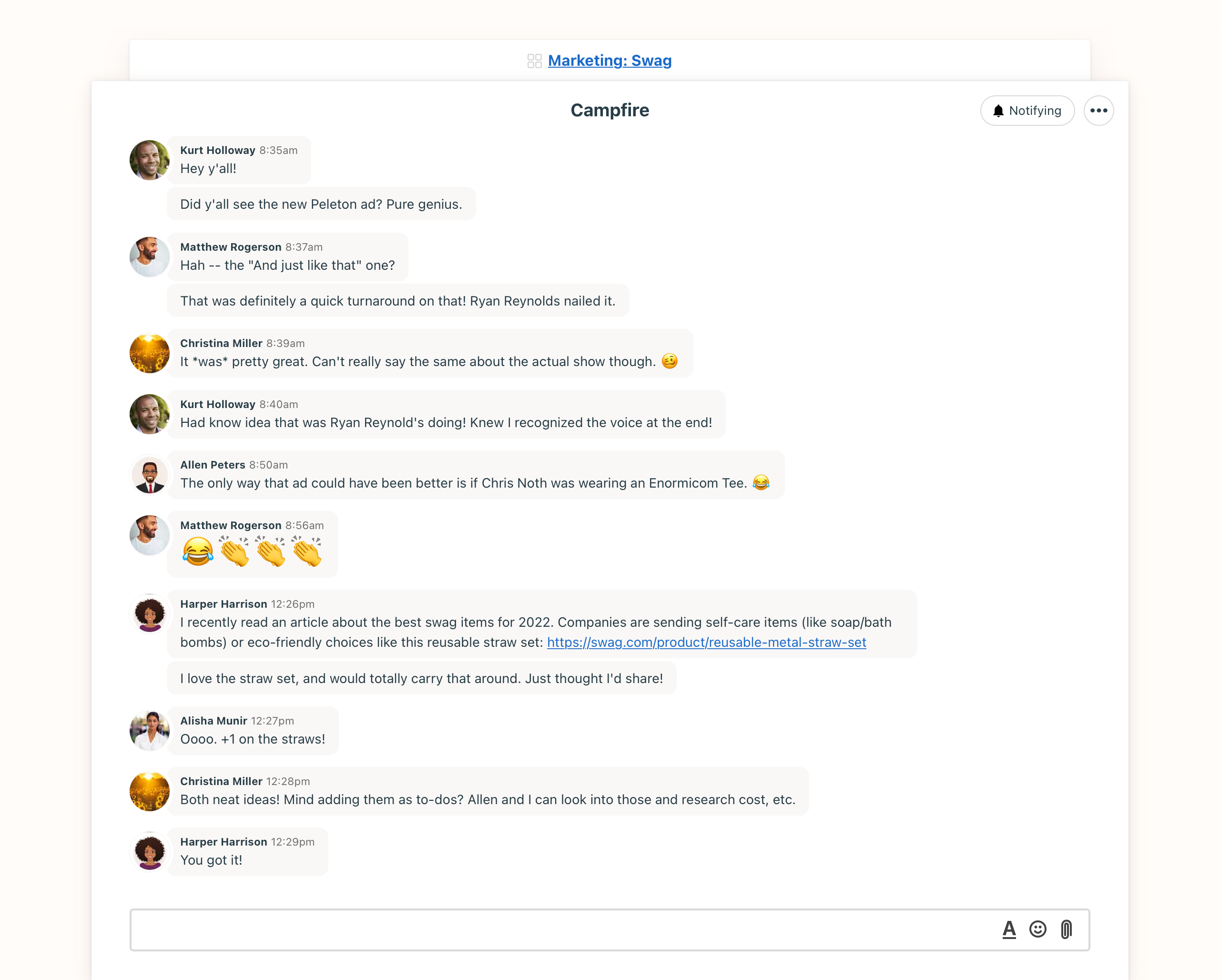There’s an increasing interest in how businesses can build fun company cultures — especially for those transitioning to (or starting) remote work. Everybody wants to know how to become the one company that others rave about. The company where applicants line up to get hired. For those who have recently made the switch to remote work permanent, they also want to make sure to maintain the team’s relationships with one another.
This instinct isn’t wrong. But it’s missing the mark in a huge way.
There’s no denying that culture is important in the workplace. It helps you work together as a team, makes work more enjoyable, aids in decision-making, and helps you hire the right people who fit your values.
But many articles and resources make culture more complicated than it needs to be. With 20+ years as a fully remote company, we want to set the record straight.
What is Company Culture?
Company culture is created, not defined. It encompasses who you are as people, how you like to do things, and what kind of fun you have as a team. This includes how you communicate and how your team treats one another.
Company culture is unique to every business, and for all types of work: in person, hybrid work, and remote work. Though with the rise in remote work over the past few years, there is considerable concern about creating culture when your teams do not interact face-to-face.
In their book REMOTE, Basecamp Founders Jason Fried and David Heinemeier Hansson explain the nuances of company culture:
“Culture isn’t a foosball table. It’s not a paintball outing in the forest. It’s not even the Christmas party where Steve got so drunk that everyone had a good story for the rest of the year. That’s people hanging out and having a good time. No, culture is the spoken and unspoken values and actions of the organization. Here are a few examples:
- How we talk to customers—are they always right?
- What quality is acceptable—good enough or must it be perfect?
- How we talk to each other—with diplomatic tones or shouting matches?
- Workload—do we cheer on all-nighters or take Fridays off?
- Risk taking—do we favor bet-the-company pivots or slow growth?”
Company Culture is a Rising Concern — Does It Need to Be?
There are a lot of concerns and assumptions about building a remote work culture:
- You assume you need to be proactive in order to maintain or build the culture.
- You assume your team won’t naturally find ways to connect.
- You assume that not being in person means nobody will get along.
- You assume that not writing up your company’s culture in a readable doc means new hires won’t know how to behave.
These concerns aren’t ones you need to focus on. The truth is creating a remote company culture that’s authentic is much easier than clickbait-y articles are trying to make you believe.
That said, you can definitely be proactive in taking the right steps to help foster culture in the workplace.
How to Build a Remote Work Culture That’s Genuine
The last thing you want to do is dictate how people need to behave at your company. That will make people run for the hills — fast. But as a leader, there are plenty of ways you can help your team lean into feeling comfortable and coming together on their own.
1. Stop trying so hard
We’ve all had that one friend whose dad tried way too hard to be the “fun” dad and ended up making things awkward and uncomfortable instead. That’s what you look like to your team when you try to create a remote culture.
The truth is that remote company culture develops on its own, and is a result of your hiring practices, core values as a company, and who you are as a leader. What you praise is noticed. The standards you hold yourself to are seen and replicated. How you treat coworkers and customers becomes evident. You can relax and lean into how you want all of this to look like and your team will naturally follow.
2. Create opportunities for non-work communication
If everything is nonstop work, there aren’t a ton of opportunities for your team to create deeper connections. Do they need to? Not necessarily - work is work, not family. But it does help your company culture when your employees know each other and genuinely care about each other.
Some ways to foster more non-work communication include:
- A zoom room open at the end of the week for a “happy hour” where employees can relax and chat a bit
- Allowing time at the beginning and end of meetings for natural rapport (fight the urge to “get into the agenda asap”—it’s not wasted time to chat about the recent football game or ask about how one person’s family trip went)
- Create a space for casual non-work conversation inside your work management software (we like to use social channels, Automatic Check-ins, and Chat here at Basecamp to share photos of pets, recaps of vacations, and more with our colleagues)

Ultimately, your team might not do this on their own, so prioritizing a space for this will help them connect easier.
3. Stop the “ice breakers” and “bonding” exercises
These just aren’t necessary. Forced vulnerability is not vulnerability. New people don’t want to hop into their first meeting and be put on the spot to tell everyone something about themselves. This usually results in their first impression being one of discomfort, not inclusion.
Even if you get together for the occasional in-person gathering (like our recent company meet-up in Amsterdam), opt to put more free time on the schedule instead of ice-breaker activities. Your team will naturally talk about their lives if given the opportunity to just hang out and chat.
(Psst… looking for a place to keep all your remote employees connected? Try the all-new Basecamp. With group chats, private messaging, file sharing, message boards, to-dos, and more, you have everything you need to keep your remote teams on track, all in one place. Get started today for free - no credit card; no commitment)
4. Create core values to use as a north star
Some companies have these, some don’t. But if you want to build your company culture and attract the people who care about the same things you do, this is a good place to start.
Company values are basically standards you want to set for yourself and others in your business. Not only does this give you a good bar to measure applicants with, it also helps you hold yourself and the business as a whole accountable to what you say you value.
These are a few examples of core values that can shape your remote company culture:
- Customers first
- Fail, learn, and fix
- Honesty first
- Radical transparency
- Team before individual
- Trust through transparency
- Integrity in all areas
- Inclusion and respect
- Do what’s right, always
Our own company values are available for anyone to read, and do a lot to inform new hires and customers about exactly what we stand for. You’ll have to decide what set of values you want to shape your company culture, and use those to shape how you make decisions.
5. Explain how and why decisions are made
The way your company runs is on decisions. What do you prioritize and why?
Your company culture is shaped by what you do, not what you say. This is where core values are put to the test and help shape your internal culture. Do you make decisions based on these values? When the decision is difficult, what do you resort to? Opening this specific line of communication will allow your team the opportunity to understand how things are done, and adopt that way for themselves.
Looking for a space to foster a stronger culture for your remote employees? Consider Basecamp. Millions of people have used Basecamp to do better work and stay connected to their co-workers and clients. Best of all, you can get started for free in just 30 seconds (no credit card, no commitment):




